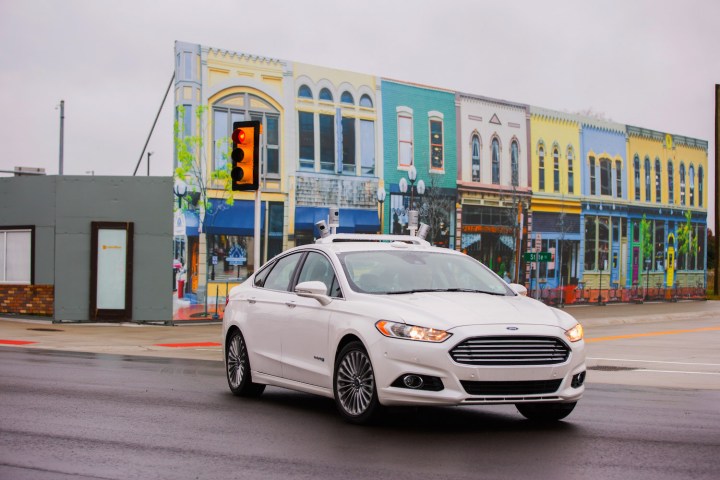
So far, Ford has stuck to its message, doubling down on smart infrastructure, testing semi- and fully autonomous vehicles, and appointing a technology leader to steer the entire company. Alas, much of Ford’s work has seemed heady – too futuristic or impractical for most of us to imagine integrating within our daily lives.
This latest announcement at CES 2018, however, is decidedly more applicable in the here and now. In an article on Medium, Sherif Marakby, Ford vice president of Autonomous Vehicles and Electrification, sums up the company’s latest partnership with Postmates.
“As the first on-demand partner for our self-driving vehicle program, we’re setting out together to explore new ways in which this technology can serve people living and working in our communities by offering more efficient deliveries, and by connecting more consumers to smaller and local businesses,” Marakby said.
Marakby goes on to explain that Ford’s vision is one where small businesses can reach customers they never could before with the help of its autonomous vehicle fleet. Postmates, for any of you who aren’t familiar, is an on-demand delivery service that will bring you anything from groceries to hardware store items via an Uber-like fleet of drivers. Ford’s goal is to even the geographical playing field between small and large businesses.
Ford and Postmates will initiate pilot programs this year to determine what, if any, on-demand delivery improvements are made thanks to autonomous vehicles. Ford will evaluate the experience for both merchant and consumer. Down the road (pun intended), all Postmates orders could be delivered by driverless cars.
Ford cites Postmates’ ability to quadruple sales for some retailers and its distinct impact on businesses in low-income communities (where perhaps families can’t afford a car) as a key reason for its partnership.
If this collaboration proves effective, we fully anticipate Ford will find new ways to employ its self-driving vehicles to the benefit of businesses and their customers.

